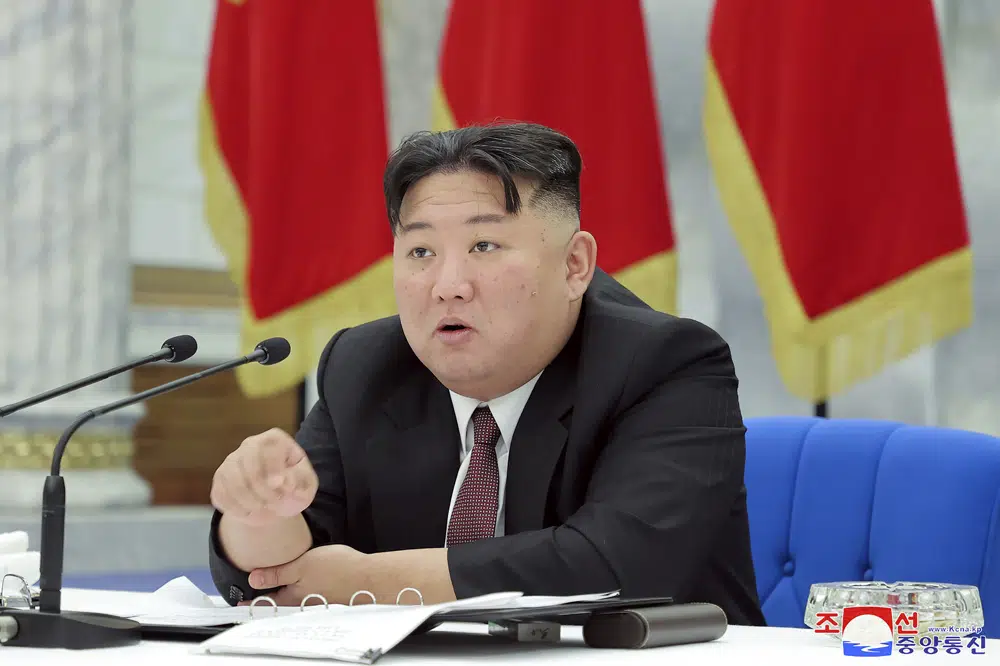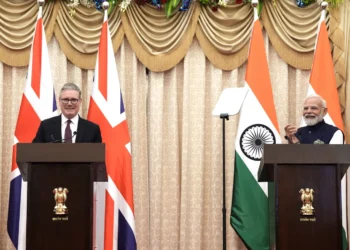North Korea’s parliament has approved a budget that sustains a high level of defense spending in spite of the current economic troubles as Leader Kim Jong Un pursues an aggressive expansion of his nuclear weapons amid stalled diplomacy.
State media reports showed that Kim did not attend the Supreme People’s Assembly’s two-day session that ended on Wednesday, January 18, 2023. Pyongyang’s official news agency did not reveal any comments by assembly members toward the United States or South Korea in its report of the meetings.
The assembly convened weeks after Leader Kim Jong Un called for an “exponential increase” of nuclear warheads, mass production of battlefield tactical nuclear weapons targeting “enemy” South Korea and the development of more advanced intercontinental ballistic missiles designed to reach the U.S. mainland.
Kim’s statements during a major political conference in December last year gave emphasis to an escalating nuclear deadlock with the United States and its allies in Asia after he pushed North Korea’s weapons tests to a record pace in 2022.
North Korea fired more than 70 missiles last year, including multiple Intercontinental Ballistic Missile launches, and carried out series of tests it described as simulated nuclear attacks on South Korean and U.S. targets.
Analysts claim that Kim’s aggressive arms expansion and intensifying nuclear doctrine are aimed at coercing the United States to accept the idea of North Korea as a nuclear power and to negotiate economic and security concessions from a position of strength.
North Korea’s state news agency disclosed that the assembly members’ estimated overall state spending would increase by 1.7% this year but made no mention of the actual size of the budget.
The assembly members’ devoted 15.9% of this year’s national budget to defense spending, the same proportion as last year, to support efforts on “further bolstering up the war deterrence both in quality and quantity” and “defending the dignity and security of the country and the people,” state media revealed.
It is difficult to estimate how much money North Korea would be spending on its military capabilities, considering the poor quality of the limited statistics it discloses.
According to the U.S. State Department’s 2021 World Military Expenditures and Arms Transfers report, North Korea possibly spent around $4 billion on defense in 2019, which would have amounted to 26% of its estimated gross domestic product, the highest proportion among 170 countries it reviewed.

North Korea Struggling To Revive Economy
North Korea’s news agency’s report on the assembly meetings hinted that North Korea was struggling to revive a declining economy afflicted by mismanagement, U.S.-led sanctions over Kim’s nuclear ambitions, and COVID-19-related border closures.
Finance Minister, Ko Jong Bom bemoaned unspecified shortcomings in raising tax revenues from state companies. The Finance Minister urged economic workers to strengthen their “ideological resolve” and put broader national interests before the interests of their specific units.
The assembly members also passed a new law aimed at protecting the “cultured” dialect specific to the capital Pyongyang region, apparently the country’s latest step to curtail South Korean and other foreign cultural influences.
Assembly members also discussed strengthening the surveillance activities of the Central Public Prosecutors Office to establish “revolutionary law-abiding spirit,” underscoring how Kim’s government continues to strengthen its control of its people in face of the deepening economic challenges.
Kim last appeared at the assembly in September, when he defiantly stated that his country would never abandon the nuclear weapons he clearly regards as his strongest guarantee of survival.
Worried by the surging North Korean nuclear threat, South Korea and Japan are scrambling to bolster their defense postures in conjunction with their alliances with the United States.
READ ALSO: Netanyahu Must Fire Key Ally From Country’s Cabinet – Israel’s Supreme Court





















